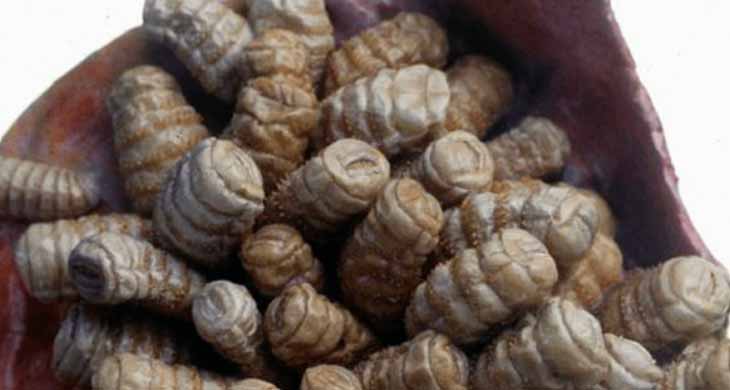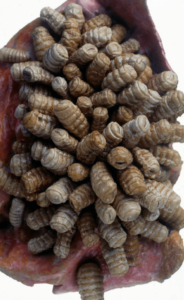Strategies for Protection Against Gasterophilus Intestinalis

Gasterophilus intestinalis, sometimes known as the horse bot fly, is a parasitic bug that threatens the health of horses. These insects lay their eggs on the coat of a horse, which is then consumed when the animal licks or grooms itself.
Hatched larvae can cause itchiness, discomfort, and internal damage. It is critical to protect your horse from Gasterophilus intestinalis in order to maintain their health and avoid health concerns. In this post, we will look at effective ways to protect your equine companion from the dangers of horse bot flies.

Grooming on a regular basis not only keeps your horse looking good, but it also helps to remove bot fly eggs from its coat. Remove any eggs or larvae that have been deposited on the horse’s hair with a grooming mitt or brush.
The importance of timing: Horse bot flies are seasonal insects that are most active during the warmer months. Knowing their life cycle might help you predict when they will be active and take necessary preventive measures.
Use Fly Repellents: Using fly repellents designated as safe for equines can keep horse bot flies away from your horse. Follow the manufacturer’s instructions and reapply as necessary.
Fly Sheets and Masks: Outfitting your horse with a fly sheet and a fly mask not only protects them from the sun and biting insects but also acts as a barrier against bot fly eggs.
Maintain Clean Stalls and Pastures: To limit the amount of bot fly eggs, clean your horse’s living environment on a regular basis, including stalls and pastures. Removing manure and rubbish can help to reduce the number of places where flies can deposit their eggs.
Maintain Good Hygiene: Providing a clean and sanitary living environment for your horse decreases the likelihood of fly infestations. Clean water troughs and feed buckets on a regular basis to keep flies away.
Implement a Strategic Deworming Strategy: Work with your veterinarian to develop a deworming regimen that is specific to your horse’s needs. Certain deworming drugs specifically target and kill botfly larvae in the horse’s stomach.
Manually remove bot fly eggs from your horse’s coat with a bot knife or specialist grooming equipment. Pay special attention to places where flies are known to lay eggs, such as the legs, shoulders, and mane.
Rotate Pastures: Changing pastures on a regular basis will help interrupt the life cycle of bot flies, lowering their overall prevalence in your horse’s habitat.
Garlic or Apple Cider Vinegar Supplementation: Some horse owners feel that adding garlic or apple cider vinegar to their horse’s feed might help deter flies. While additional research on their usefulness is required, these natural supplements are worth investigating.
Use Bot Fly Traps: Bot fly traps are available on the market and can assist in capturing adult flies before they lay eggs on your horse. Strategically placing these traps can help to lower the fly population in the area.
Consult Your Veterinarian: If you suspect your horse has been infested with bot fly larvae, get guidance from your veterinarian on the best treatment options. They can suggest deworming drugs and other steps to address the problem.
To protect your horse from Gasterophilus intestinalis, you must combine diligent care, strategic planning, and preventive measures. You may reduce the danger of an infestation and keep your horse healthy and comfortable by staying informed about the bot fly’s life cycle and applying the techniques indicated above.
Remember that each horse’s needs are unique, so work with your veterinarian to develop a customized plan that effectively protects against these pesky parasites.




